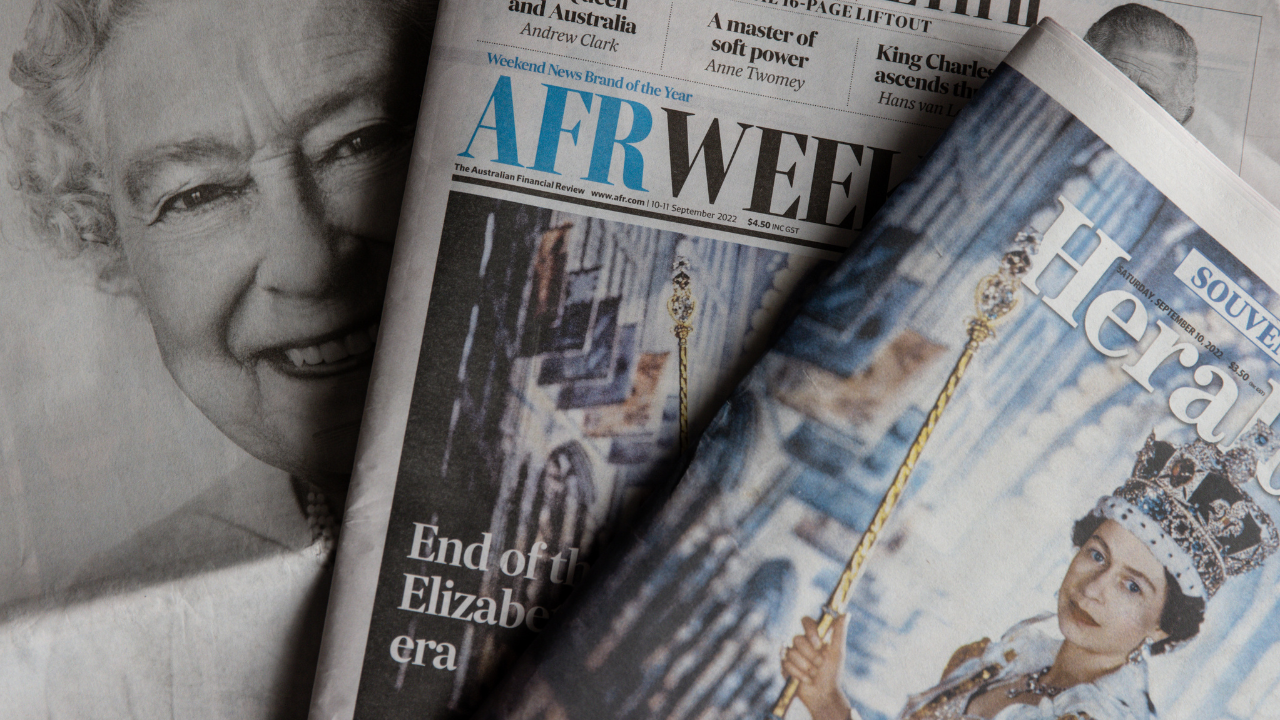
messages of grief from federal and state governments
King Charles III
Denis Muller
bar a few poignant pieces
Anthony Albanese
Now is not a time to talk about our system of government
support has dropped
are holding protests
told PEDESTRIAN.TV the suffocating coverage, which by and large rarely mentioned colonisation, has not only silenced First Nations voices but also represented a missed opportunity for open conversations about Australia’s past.
“[The Queen’s death] could have been an opportunity for not only the government but all Australians to reckon with our colonial past through a process of truth-telling,” Coe said.
“I think the opportunity has been missed.”
Coe said the and media representation of the monarchy showed Australia remained loyal to its imperial roots.
“We’re experiencing this saturation in the media of the monarchy, which is an institution that represents all of the intergenerational trauma that affects our communities today. High incarceration, child removals and the socioeconomic disparities that stem from colonisation have been completely left out of the national narrative,” Coe said.
“They needed to include the full story about the Crown and how it accumulated its power, wealth and privilege through stolen land and stolen wealth.”
The Queen’s death was a drop-everything moment for journalists. Mastheads have been planning for this event for decades, prewriting articles and loading up a schedule of content.
Much of the coverage has been one-fact stories — she died; was named successor; her coffin was moved, etc — or longwinded tributes and anecdotes from moments in her life that supposedly revealed what she was like.
“There’s a real emphasis on the Queen as a person and not really talking about the Crown as an institution and the violence it’s inflicted on not just First Nations but other minority groups around the world,” Coe said.
While mass media has an obligation to the community to mark the Queen’s passing as significant, senior research fellow at the University of Melbourne’s Centre for Advancing Journalism said such old-school coverage showed the media hadn’t kept up with the times.
“[There’s been] too much of the traditional stuff, not enough of the substantial associated political issues,” Muller told PEDESTRIAN.TV.
“The mainstream media takes a risk with … creating a backlash within its market. Commercial media can’t afford to do that because it costs them sales and ratings and the ABC of course is constrained because it will come under political attack.”
“[The coverage] was very much driven by engrained, entrenched news decisions that really hadn’t taken into account of the extent to which society has changed, particularly since the advent of social media.”
Social media has given people access to more information and opinions than ever before and enlivened public discourse and debate. So coverage that overwhelmingly overlooked Australia’s colonial history, , is blatantly inadequate in 2022.
“What the monarchy has done in the world and in particular its legacy to Australia in terms of its treatment of Indigenous Peoples was seriously underdone, so it’s a question of balance,” Muller said.
Prime Minister has also kept his addresses since her death very short and to the point.
“, now is a time for us to pay tribute to the life of Queen Elizabeth,” he told the ABC last week.
But if after the death of our head of state is not the right time to discuss their role in Australia, when is?
Muller said any media focus on the possibility of Australia becoming a republic last week may have been futile because and Albanese has said repeatedly, since well before he was elected, it wouldn’t happen in his government’s first term.
“[But] I think the monarchy’s impact on the world and in particular its dispossession of the Aboriginal people, you can talk about that anytime,” Muller said.
Coe said the public holiday to mourn the Queen on September 22 should be the perfect catalyst for these discussions.
FISTT and Warriors of the Aboriginal Resistance (WAR) on the day in Melbourne, Canberra, Sydney and Brisbane against racist colonial imperialism and the ongoing attempted genocide of First Nations people.
“This [public holiday] is a further indication to us that this government is not going to take us seriously. It’s telling us to be respectful to an institution which has done nothing but cause us harm,” Coe said.
“Through this protest, we want to ensure that our voices are heard and our presence is always made visible in our own country.”
The post ‘Missed Opportunity’: The Media Should Have Talked About Colonisation More After The Queen Died appeared first on PEDESTRIAN.TV .







